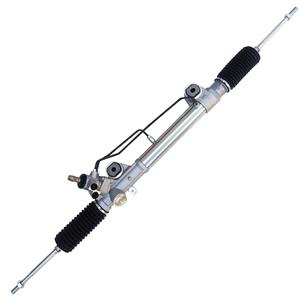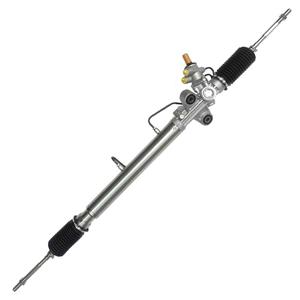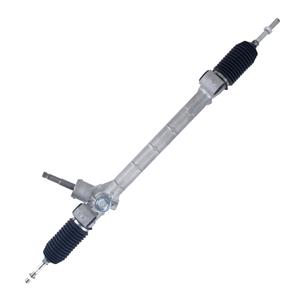Can water act as hydraulic fluid?
Among the many complex systems in modern cars, the hydraulic steering system is a vital component. Its existence allows the driver to easily control the steering wheel without feeling any effort even at low speed or when parking. The normal operation of the hydraulic steering system is inseparable from the lubrication and transmission functions of hydraulic oil. However, sometimes people may have a misunderstanding: Can water act as hydraulic fluid? When the hydraulic fluid is insufficient, can water be directly added to the hydraulic steering system?
This article will answer this in detail to help car owners better understand the operating principle and maintenance points of the hydraulic steering system.
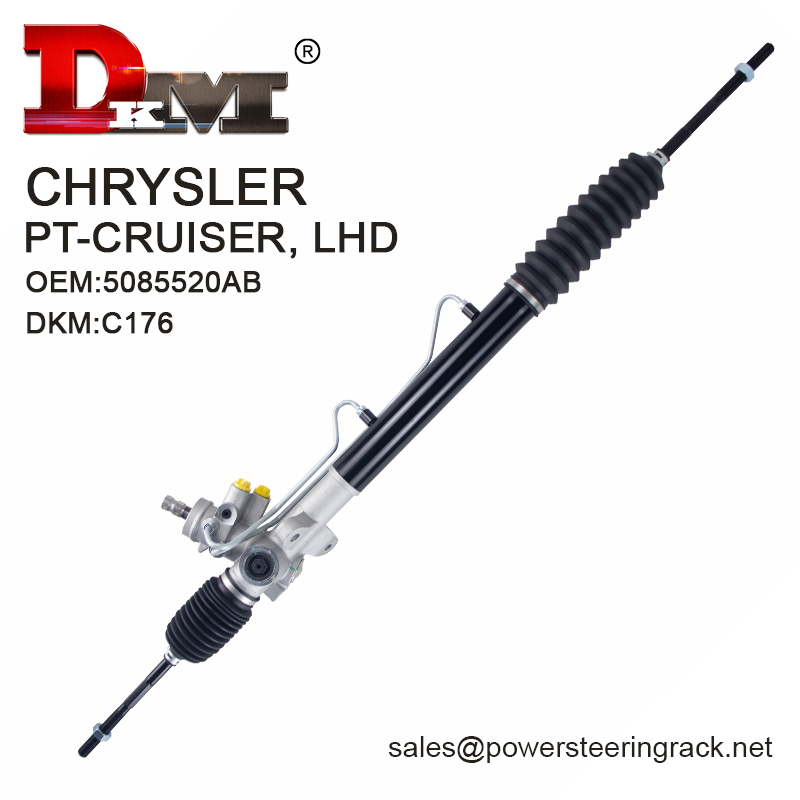
What is the role of hydraulic oil?
Before discussing whether water can replace hydraulic oil, we first need to understand the role of hydraulic oil in the hydraulic steering system. Hydraulic oil is not just a fluid in the system, it plays several key roles in the entire hydraulic system:
Transmitting pressure
The main function of hydraulic oil is to assist the driver in steering the steering wheel by transmitting pressure between the hydraulic pump and the steering gear. The incompressibility and fluidity of hydraulic oil allow pressure to be transmitted quickly and evenly, allowing the steering system to respond quickly to the driver's control.
Lubrication
There are many metal parts inside the hydraulic system, including pumps, valves, pistons, etc. These parts will generate friction when they are in operation, and hydraulic oil can provide lubrication for these parts, reduce friction and wear, and extend the service life of the system.
Cooling effect
In the hydraulic system, the oil can also circulate to remove the heat generated by the system during operation, preventing the system from malfunctioning or deteriorating due to overheating.
Anti-corrosion and anti-rust
Hydraulic oil usually contains preservatives, which can prevent the metal parts inside the system from rusting or corroding, and protect the system from moisture and oxygen.
The difference between the physical and chemical properties of water and hydraulic oil
After understanding the key role of hydraulic oil, the next thing to discuss is the huge difference in the physical and chemical properties of water and hydraulic oil, which is also the fundamental reason why water cannot replace hydraulic oil.
Compressibility of water
Although water is widely believed to be incompressible, it will still be slightly compressed under high pressure conditions, which will cause unstable pressure transmission in the hydraulic system, directly affecting the response speed and accuracy of the steering system. Hydraulic oil is specially formulated, and its compressibility is almost zero within the design range, ensuring the reliability of the system.
Lubricating properties of water
Water does not have the lubricating properties of hydraulic oil. In a hydraulic steering system, if water is used instead of hydraulic oil, the friction between metal parts will increase significantly. This will not only lead to a decrease in the operating efficiency of the system, but also accelerate the wear of internal parts, and eventually may cause the entire system to fail.
Corrosiveness of water
Water will dissolve oxygen when it comes into contact with air, and it will also cause rust inside the hydraulic system. In contrast, hydraulic oil usually contains antioxidants and rust inhibitors, which can effectively prevent metal parts from rusting. If water is added to the hydraulic system, the metal parts inside the system will corrode rapidly, greatly shortening the service life of the system.
Heat capacity of water
Water has a high heat capacity, but this property does not apply in hydraulic systems. Water cannot maintain stable chemical properties at high temperatures like hydraulic oil, which can easily cause the system to overheat and damage system components.
Low temperature properties of water
Water will freeze below 0 degrees Celsius to form ice cubes, which is fatal to hydraulic systems. In cold environments, if water is mixed into the hydraulic system, the system may lose its function due to the freezing of water. Hydraulic oil, on the other hand, has excellent low-temperature performance and can remain liquid even in severe cold conditions, ensuring the normal operation of the system.
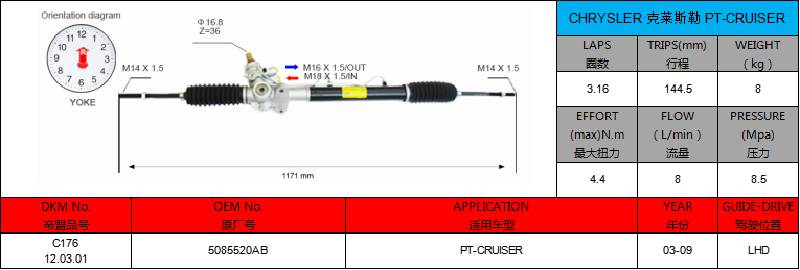
Why can't water be added to the hydraulic steering system?
Based on the above comparison, we can draw a clear conclusion: water cannot act as hydraulic oil, and water must never be added to the hydraulic steering system. This is because:
Instability of pressure transmission
Although the compressibility of water is very small, it still exists. Under high pressure, this slight compression will cause unstable pressure transmission, which will affect the performance of the hydraulic system. This instability will cause slow or imprecise steering response, affecting driving safety.
Insufficient lubrication
The metal parts inside the hydraulic steering system need hydraulic oil lubrication to work properly. Water not only fails to provide lubrication, but also increases friction, causing rapid wear of parts, and even causing the system to get stuck or fail.
Corrosion risk
Water can easily cause metal parts inside the hydraulic system to rust, especially when water is retained for a long time. Once the hydraulic steering system rusts, it will not only affect the operation of the system, but also cause the seals to fail, which will lead to more serious problems such as hydraulic oil leakage.
Freezing problems at low temperatures
In low temperatures, water will freeze, and the ice will block the hydraulic system's pipes, causing the hydraulic system to not work properly. Hydraulic oil does not have this problem, and it can maintain stable performance in various environments.
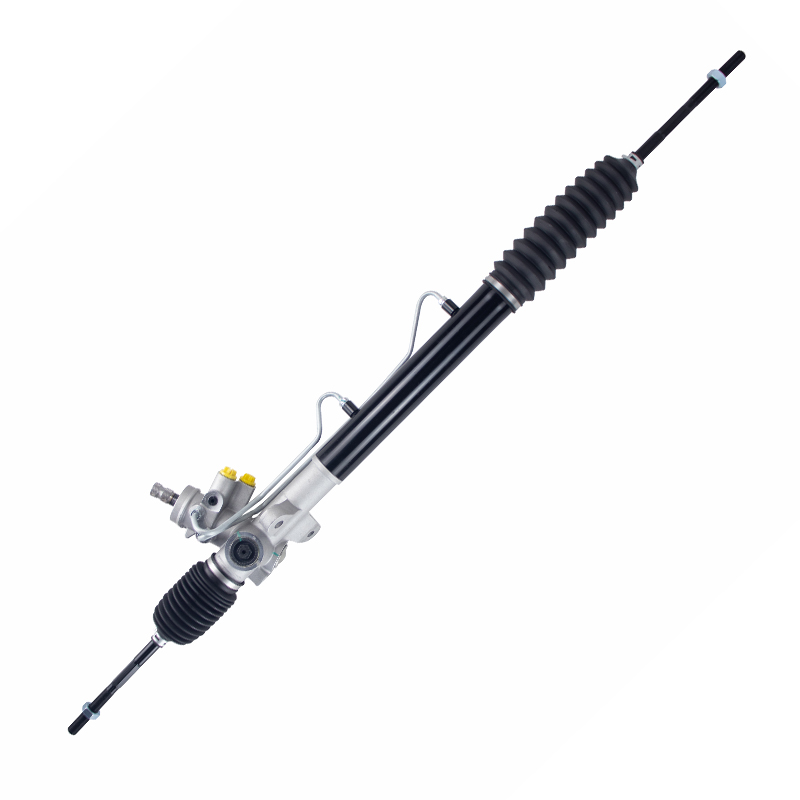
What should I do if water is accidentally mixed into the hydraulic steering system?
Although water cannot be used as hydraulic oil, in actual use, it is inevitable that water will be accidentally mixed into the hydraulic steering system. In this case, measures should be taken as soon as possible to avoid damage to the system.
Replace hydraulic oil immediately
If water is mixed into the hydraulic steering system, the hydraulic oil in the system should be replaced immediately. This includes emptying the old oil in the system and then filling it with fresh hydraulic oil. Try to avoid mixing water again during the oil change process.
Check system seals
The main way for water to enter the hydraulic system is seal failure. If water is found in the hydraulic oil, the various sealing parts of the system should be carefully checked to ensure that the seals are intact. If the seals are aged or damaged, they should be replaced in time.
Clean the system
Before changing the hydraulic oil, it is best to thoroughly clean the hydraulic steering system to ensure that all water and impurities are removed. This can be done with a professional hydraulic system cleaner to ensure that the system is clean inside.
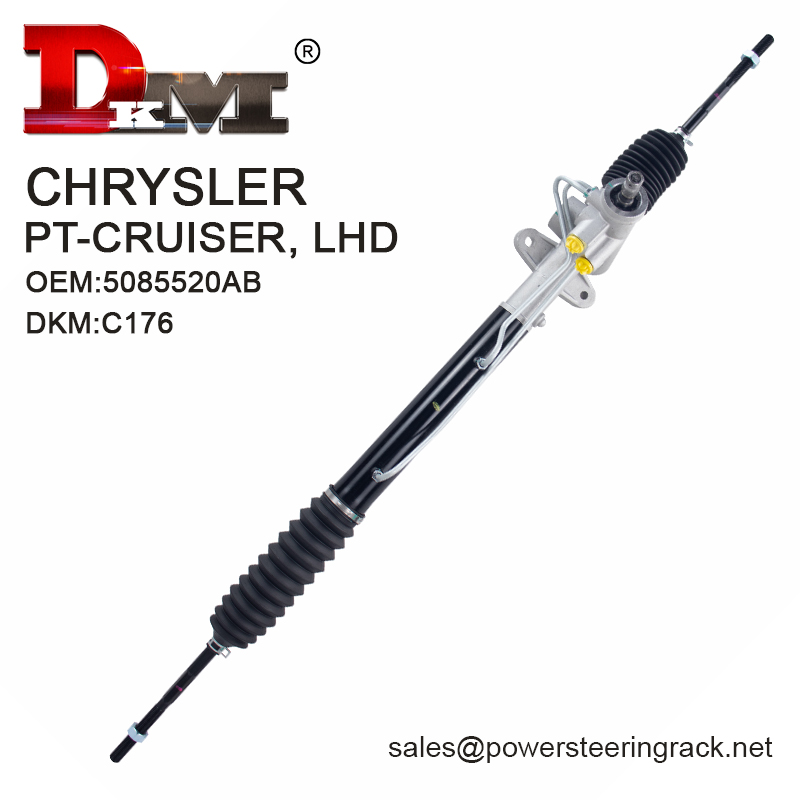
Conclusion
The hydraulic steering system is an important part of the car's control, and hydraulic oil is the key fluid for its normal operation. Since water has significant differences in physical and chemical properties from hydraulic oil, water cannot act as hydraulic oil, and water must never be added to the hydraulic steering system. Not only does water fail to provide the lubrication and transmission functions of hydraulic oil, it can also cause serious problems such as corrosion and low-temperature freezing inside the system.
In order to ensure the normal operation of the hydraulic steering system, the owner should regularly check the state of the hydraulic oil and avoid any water from entering the system. If water is accidentally mixed in, measures should be taken immediately to remove the water to avoid irreversible damage to the system. Keeping the hydraulic system in good condition can not only extend the service life of the system, but also ensure driving safety and comfort.
Therefore, whether in normal vehicle maintenance or in emergency situations, it must be clear that water can never replace hydraulic oil, and any water in the hydraulic steering system may have a serious impact on the system. Only by using the appropriate hydraulic oil can the normal operation and optimal performance of the hydraulic steering system be ensured.


